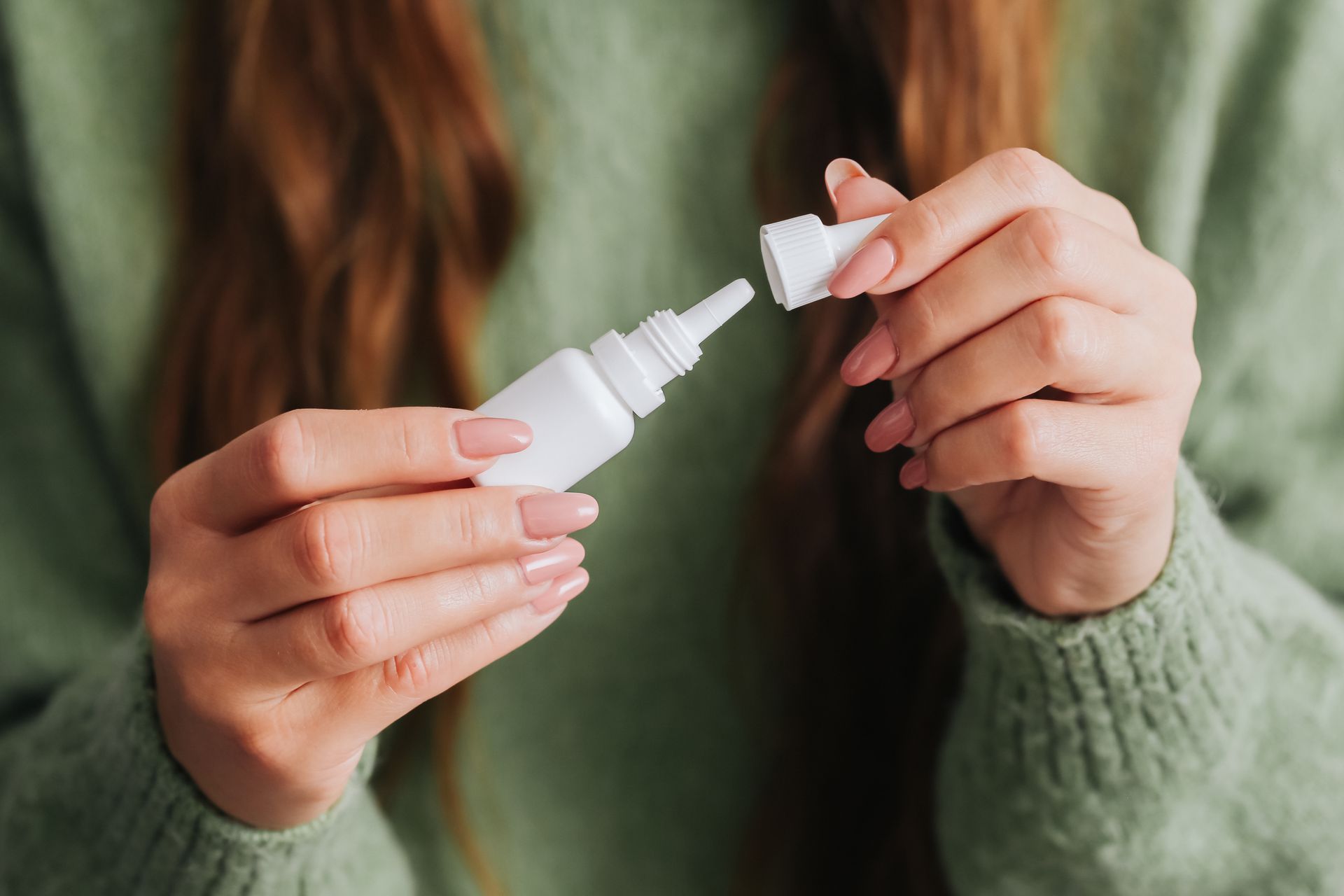Allergy Medication Guide: Choosing the Best Option for Your Symptoms

Seasonal allergies, also known as allergic rhinitis or hay fever, affect millions of people each year—often bringing itchy eyes, sneezing, runny noses, and fatigue right along with the blooming flowers.
Thankfully, there are more treatment options than ever before, from oral antihistamines to nasal sprays, eye drops, and combination therapies. But with so many over-the-counter and prescription options available, how do you know which allergy medicine is right for your symptoms?
Knowing how different types of medications work and how to match them to your symptoms can make all the difference.
Types of Allergy Medications
There are several categories of allergy treatments, each designed to target different parts of the body and different types of symptoms.
Antihistamines (Oral Tablets)
Oral antihistamines are often the first line of defense for seasonal allergies. They block histamine, a chemical your body releases when exposed to allergens like pollen or dust.
Common options include:
- Loratadine (Claritin): Non-drowsy, once-daily. Good for mild symptoms.
- Cetirizine (Zyrtec): Stronger than loratadine but may cause drowsiness in some.
- Fexofenadine (Allegra): Non-drowsy and fast-acting; often preferred for daytime use.
- Diphenhydramine (Benadryl): Highly effective but very sedating; best used for short-term relief or nighttime symptoms.
Best for: Sneezing, runny nose, itchy throat, and mild eye irritation.
Not ideal for: Congestion or sinus pressure.
Nasal Sprays
If nasal congestion is your main issue, a nasal spray might be more effective than a pill. These medications work locally, reducing swelling and inflammation in the nasal passages.
Types include:
- Steroid nasal sprays (e.g., Flonase, Nasacort, Rhinocort): Reduce inflammation and are best for ongoing, moderate-to-severe symptoms.
- Antihistamine nasal sprays (e.g., Astelin): Work faster than steroid sprays but may need to be used twice daily.
- Decongestant nasal sprays (e.g., Afrin): Provide fast relief but should only be used for 3 days or less to avoid rebound congestion.
Nasal sprays are ideal for those whose main symptom is a stuffy nose or sinus pressure and are often combined with oral antihistamines.
Eye Drops
If your allergies mostly affect your eyes, antihistamine eye drops are a quick and targeted solution.
Options include:
- Ketotifen (Zaditor, Alaway): Over-the-counter and effective for itchy eyes.
- Olopatadine (Pataday): Prescription-strength and may offer longer relief.
- Artificial tears: Help wash allergens out of the eyes and reduce irritation.
These are especially helpful for contact lens wearers or those sensitive to outdoor allergens like pollen or dust.
Decongestants (Oral)
Pseudoephedrine (Sudafed) is an oral decongestant that reduces swelling in the nasal passages. It's available behind the pharmacy counter due to regulations and should be used for short-term relief only.
Oral decongestants can cause side effects like increased heart rate or jitteriness and may not be suitable for people with heart conditions or high blood pressure.
Combination Medications
Some allergy sufferers find the most relief in combination treatments. Medications like Claritin-D or Allegra-D combine an antihistamine with a decongestant to tackle multiple symptoms at once.
These should be used with caution and under pharmacist or physician guidance due to potential side effects.
How to Choose the Right Medication
Choosing the right allergy medication depends on your symptoms, lifestyle, and how your body responds to different treatments.
Match Your Symptoms
- Sneezing, itching, runny nose? Start with an oral antihistamine.
- Nasal congestion? Consider a steroid nasal spray or short-term decongestant.
- Itchy, watery eyes? Try antihistamine eye drops.
- Multiple symptoms? A combination approach may be most effective.
Try Different Antihistamines
Everyone reacts differently. If loratadine doesn’t work, cetirizine or fexofenadine might. If drowsiness is an issue, try switching to a non-sedating option.
Track Your Symptoms
Keep a log of:
- When symptoms occur
- What medications you’ve tried
- How well they worked
This helps you and your pharmacist or doctor fine-tune your treatment plan.
Talk to Your Pharmacist
Pharmacists can help with:
- Drug interactions
- Dosing
- Selecting options for children or people with underlying medical conditions
Be Consistent
Some medications—especially steroid nasal sprays—work best when taken daily, not just when symptoms flare up.
When to See a Doctor
If your symptoms are severe, persistent, or not responding to over-the-counter treatments, it may be time to visit a healthcare provider.
You could be dealing with:
- Asthma
- Chronic sinusitis
- Other conditions that require a different approach
Allergy testing may also help identify your specific triggers.
Get Personalized Allergy Relief at Our Pharmacy in Houston, Sugar Land, Greenspoint, Jersey Village, and Beyond
Not sure which allergy medication is right for you? The knowledgeable team at St. Hope Pharmacy is here to help. We can walk you through your options, explain how each treatment works, and ensure your medications are safe and effective for your needs.
Visit us at St. Hope Pharmacy today for personalized allergy support, easy medication refills, and expert advice you can trust—or reach out to us through our website.


